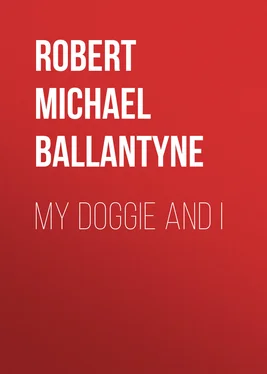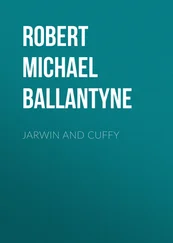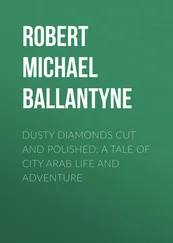Robert Michael Ballantyne - My Doggie and I
Здесь есть возможность читать онлайн «Robert Michael Ballantyne - My Doggie and I» — ознакомительный отрывок электронной книги совершенно бесплатно, а после прочтения отрывка купить полную версию. В некоторых случаях можно слушать аудио, скачать через торрент в формате fb2 и присутствует краткое содержание. Жанр: foreign_children, literature_19, foreign_antique, foreign_prose, на английском языке. Описание произведения, (предисловие) а так же отзывы посетителей доступны на портале библиотеки ЛибКат.
- Название:My Doggie and I
- Автор:
- Жанр:
- Год:неизвестен
- ISBN:нет данных
- Рейтинг книги:4 / 5. Голосов: 1
-
Избранное:Добавить в избранное
- Отзывы:
-
Ваша оценка:
- 80
- 1
- 2
- 3
- 4
- 5
My Doggie and I: краткое содержание, описание и аннотация
Предлагаем к чтению аннотацию, описание, краткое содержание или предисловие (зависит от того, что написал сам автор книги «My Doggie and I»). Если вы не нашли необходимую информацию о книге — напишите в комментариях, мы постараемся отыскать её.
My Doggie and I — читать онлайн ознакомительный отрывок
Ниже представлен текст книги, разбитый по страницам. Система сохранения места последней прочитанной страницы, позволяет с удобством читать онлайн бесплатно книгу «My Doggie and I», без необходимости каждый раз заново искать на чём Вы остановились. Поставьте закладку, и сможете в любой момент перейти на страницу, на которой закончили чтение.
Интервал:
Закладка:
The poor creature uttered a low wail, and put a handkerchief to her old eyes.
“But, bless the Lord!” she added in a more cheerful tone, “I will go to her—soon.”
For some minutes I knew not what to say in reply, by way of comforting my poor old friend. The case seemed indeed so hopeless. I could only press her hand. But my nature is naturally buoyant, and ready to hope against hope, even when distress assails myself.
“Do not say there is no hope, granny,” said I at last, making an effort to be cheerful. “You know that with God all things are possible. It may be that this missionary did not go the right way to work in his search, however good his intentions might have been. I confess I cannot imagine how it is possible that any girl should disappear in this way, unless she had deliberately gone off with some one.”
“No, John, my Edie would not have left me thus of her own free will,” said the old woman, with a look of assurance which showed that her mind was immovably fixed as to that point.
“Well, then,” I continued, “loving you as you say she did, and being incapable of leaving you deliberately and without a word of explanation, it follows that—that—”
I stopped, for at this point no plausible reason for the girl’s disappearance suggested itself.
“It follows that she must have been killed,” said the old woman in a low broken tone.
“No, granny, I will not admit that.—Come, cheer up; I will do my best to make inquiries about her, and as I have had considerable experience in making investigations among the poor of London, perhaps I may fall on some clew. She would be sure to have made inquiries, would she not, at your old lodging, if she had felt disposed to return?”
“Felt disposed!” repeated Mrs Willis, with a strange laugh. “If she could return, you mean.”
“Well—if she could,” said I.
“No doubt she would; but soon after I left my old lodging the landlord fled the country, and other people came to the house, who were troubled by my sending so often to inquire. Then my money was all expended, and I had to quit my second lodging, and came here, which is far, far from the old lodging, and now I have no one to send.”
“Have you any friends in London?” I asked.
“No. We had come from York to try to find teaching for my darling, for we could get none in our native town, and we had not been long enough in London to make new friends when—when—she went away. My dear Ann and Willie, her mother and father, died last year, and now we have no near relations in the world.”
“Shall I read to you, granny?” said I, feeling that no words of mine could do much to comfort one in so sad a case.
She readily assented. I was in the habit of reading and praying with her during these visits. I turned, without any definite intention of doing so, to the words, “Come unto me, all ye that labour and are heavy laden, and I will give you rest.” I cannot tell why, but I paused here instead of reading on, or commenting on the words.
The old woman looked earnestly at me.
“These words,” she said, “have been in my mind all yesterday and the day before. I have been greatly comforted by them, because ‘He is faithful who has promised.’ Pray over them, John; don’t read any more.”
I knelt by the poor woman’s chair; she could not kneel with me in body, though she did in spirit, I doubt not. I had quite forgotten Slidder, but, on rising, observed that he had followed my example and gone down on his knees.
“Were you praying with us, Slidder?” I asked, after we left Mrs Willis, and were walking up the alley, followed by Dumps.
“Dun know, sir; I’ve never heard nor seen nuffin’ o’ this sort before. In coorse I’ve heard the missionaries sometimes, a-hollerin’ about the streets, but I never worrited myself about them . I say, doctor, that’s a rum go about that gal Edie—ain’t it? I’ve quite took a fancy to that gal, now, though I ain’t seen her. D’ye think she’s bin drownded?”
“I scarce know what to think. Her disappearance so suddenly does seem very strange. I fear, I fear much that—however, it’s of no use guessing. I shall at once set about making inquiries.”
“Ha! so shall I,” said the little waif, with a look of determination on his small face that amused me greatly, “for she’s a good gal is Edie—if she ain’t drownded.”
“Why, boy, how can you know whether the girl is good or bad?”
“How can I know?” he echoed, with a glance of almost superhuman wisdom. “In coorse I know by the powers of obserwation. That old gal, Mrs Willis, is a good old thing—as good as gold. Vell, a good mother is always cocksure to ’ave a good darter—specially ven she’s a only darter—so the mother o’ Edie bein’ good, Edie herself must be good, don’t you see? Anythink as belonged to Mrs Willis can’t help bein’ good. I’m glad you took me to see her, doctor, for I’ve made up my mind to take that old ’ooman up, as the bobbies say w’en they’re wexed with avin’ nuffin’ to do ’xcept strut about the streets like turkey-cocks. I’ll take ’er up and do for ’er, I will.”
On questioning him further I found that this ragged and homeless little waif had indeed been touched by Mrs Willis’s sad story, and drawn towards her by her soft, gentle nature—so different from what he had hitherto met with in his wanderings,—and that he was resolved to offer her his gratuitous services as a message-boy and general servant, without requiring either food or lodging in return.
“But Mrs Willis may object to such a dirty ragged fellow coming about her,” said I.
“Ain’t there no pumps in London, stoopid?” said Slidder, with a look of pity, “no soap?”
“True,” I replied, with a laugh, “but you’d require needles and thread and cloth, in addition, to make yourself respectable.”
“Nothink of the sort; I can beg or borrer or steal coats and pants, you know.”
“Ah, Slidder!” said I, in a kind but serious tone, “doubtless you can, but begging or borrowing are not likely to succeed, and stealing is wrong.”
“D’you think so?” returned the boy, with a look of innocent surprise. “Don’t you think, now, that in a good cause a cove might:—
“‘Take wot isn’t his’n,
An’ risk his bein’ sent to pris’n?’”
I replied emphatically that I did not think so, that wrong could never be made right by any means, and that the commencement of a course of even disinterested kindness on such principles would be sure to end ill.
“Vell, then, I’ll reconsider my decision, as the maginstrates ought to say, but never do.”
“That’s right. And now we must part, Slidder,” I said, stopping. “Here is the second sixpence I promised you, also my card and address. Will you come and see me at my own house the day after to-morrow, at eight in the morning?”
“I will,” replied the boy, with decision; “but I say, all fair an’ above-board? No school-boardin’ nor nuffin’ o’ that sort—hey? honour bright?”
“Honour bright!” I replied, holding out my hand, which he grasped and shook quite heartily.
We had both taken two or three steps in opposite directions, when, as if under the same impulse, we looked back at each other, and in so doing became aware of the fact that Dumps stood between us on the pavement in a state of extreme indecision or mental confusion.
“Hallo! I say! we’ve bin an’ forgot Punch!” exclaimed the boy.
“Dumps,” said I, “come along!”
“Punch,” said he, “come here, good dog!”
My doggie looked first at one, then at the other. The two indicators in front rose and fell, while the one behind wagged and drooped in a state of obvious uncertainty.
Читать дальшеИнтервал:
Закладка:
Похожие книги на «My Doggie and I»
Представляем Вашему вниманию похожие книги на «My Doggie and I» списком для выбора. Мы отобрали схожую по названию и смыслу литературу в надежде предоставить читателям больше вариантов отыскать новые, интересные, ещё непрочитанные произведения.
Обсуждение, отзывы о книге «My Doggie and I» и просто собственные мнения читателей. Оставьте ваши комментарии, напишите, что Вы думаете о произведении, его смысле или главных героях. Укажите что конкретно понравилось, а что нет, и почему Вы так считаете.












